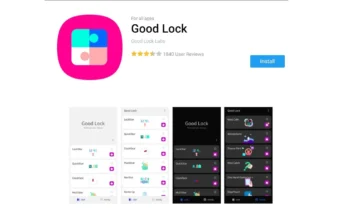
Introduction to Data Management Platforms
Data Management Platforms (DMPs) play a pivotal role in today’s digital ecosystem. Essentially, a DMP is a technology platform used for collecting, organizing, and analyzing large volumes of data from various sources. These platforms are indispensable for businesses aiming to leverage data to gain insights, improve customer experiences, and drive strategic decisions. By integrating data from disparate sources, DMPs provide a centralized repository that facilitates comprehensive data analysis and targeted marketing efforts.
The importance of DMPs cannot be overstated, particularly in the realm of web, Android, and iOS applications. In a world where personalized user experiences and data-driven strategies are critical for success, DMPs enable organizations to harness the power of data effectively. They help in segmenting audiences, optimizing campaigns, and ultimately enhancing user engagement and retention. For mobile and web applications, the ability to gather and interpret user data is crucial for tailoring content and services to meet user needs and preferences.
Choosing the right DMP is a critical decision for any organization. The ideal platform should align with the specific requirements of your web, Android, and iOS applications. Key criteria for evaluating DMPs include data integration capabilities, scalability, ease of use, analytics and reporting features, and data security measures. Additionally, the ability to support real-time data processing and provide actionable insights is essential for maintaining a competitive edge in the fast-paced digital landscape.
In this blog post, we will delve into the top 10 Data Management Platforms that stand out in the market today. Each platform will be assessed based on its strengths, unique features, and suitability for different types of applications. Whether you are looking to enhance your web presence, optimize your Android app, or revolutionize your iOS application, understanding the capabilities and benefits of these leading DMPs will guide you in making an informed decision.
Top 5 Data Management Platforms for Web
In the dynamic sphere of web applications, selecting an adept data management platform (DMP) is crucial. Here, we explore the top five DMPs tailored specifically for web applications, evaluating their core functionalities, pricing strategies, and overall performance in real-world applications.
1. Adobe Audience Manager
Adobe Audience Manager stands out with its robust data collection and segmentation capabilities. It seamlessly integrates with other Adobe products, enhancing its appeal to those already in the Adobe ecosystem. Key features include audience profiling, real-time data management, and cross-channel segmentation. Pricing is customized based on enterprise needs, which can be a drawback for smaller businesses. Users praise its comprehensive analytics, though some note a steep learning curve.
2. Oracle BlueKai
Oracle BlueKai offers extensive data aggregation and management services, excelling in third-party data integration. Its key features include audience targeting, data normalization, and extensive data partnerships. The platform is priced on a subscription model, allowing flexibility based on data usage. It integrates effortlessly with other Oracle Cloud services. Users highlight its scalability and reliability, though some find the initial setup complex.
3. Lotame
Lotame is renowned for its intuitive interface and versatile data collection methods. It supports first-party, second-party, and third-party data, making it highly flexible. Key features include identity resolution, audience analytics, and data enrichment. Lotame offers tiered pricing based on data volume and features needed. It integrates well with various advertising platforms. Users appreciate its ease of use and customer support, though there are occasional concerns about data latency.
4. Salesforce DMP
Salesforce DMP, previously known as Krux, is celebrated for its robust data unification and audience segmentation capabilities. It offers real-time data insights, cross-device identification, and personalized audience targeting. Pricing is enterprise-centric, often bundled with Salesforce’s other services. Integration with the broader Salesforce ecosystem is seamless, making it a top choice for existing Salesforce users. Reviews commend its scalability and data precision, with minor criticisms regarding its cost.
5. Tealium AudienceStream
Tealium AudienceStream is a customer data platform that excels in real-time data management and segmentation. Its key features include comprehensive tag management, real-time customer profiles, and actionable insights. Pricing varies based on data volume and feature requirements. It integrates well with numerous marketing and analytics tools. Users appreciate its real-time capabilities and extensive integration options, though some mention a learning curve for new users.
These platforms demonstrate significant strengths in data management for web applications, offering diverse features to meet various business needs. Their ability to integrate with other web technologies and scale effectively makes them invaluable tools in data-driven decision-making.
Top 5 Data Management Platforms for Android and iOS
When it comes to mobile applications, selecting the right Data Management Platform (DMP) is crucial for ensuring seamless data integration and efficient performance. Here, we highlight the top five DMPs that excel in managing data on both Android and iOS platforms, emphasizing their compatibility, ease of integration, and solutions for mobile-specific data challenges.
1. mParticle
mParticle is a leading DMP designed to handle complex data requirements for mobile applications. Its key features include real-time data integration, extensive SDK support, and a user-friendly interface. The platform supports a wide range of data sources, ensuring comprehensive data collection and management.
Pricing: mParticle offers a tiered pricing model, starting with a free trial and scaling based on data volume and features.
Pros: Excellent customer support, robust data security, and seamless integration with existing systems.
Cons: Can be expensive for small businesses.
2. Appsflyer
Appsflyer is another prominent DMP that focuses on mobile analytics and attribution. It provides advanced tracking capabilities, fraud prevention, and deep linking functionalities. The platform is known for its ease of integration and comprehensive data visualization tools.
Pricing: Appsflyer offers custom pricing based on app usage and specific needs.
Pros: Superior tracking accuracy, detailed analytics, and strong customer support.
Cons: The learning curve can be steep for new users.
3. Tealium
Tealium is renowned for its versatile data management solutions and robust mobile SDKs. Its key features include real-time data enrichment, comprehensive tag management, and seamless integration with various marketing platforms.
Pricing: Tealium offers customized pricing based on business requirements.
Pros: High flexibility, excellent customer service, and strong data governance features.
Cons: Can be complex to set up initially.
4. Adjust
Adjust is a DMP that specializes in mobile performance measurement and user analytics. Its features include real-time fraud prevention, cohort analysis, and robust attribution models. Adjust is praised for its ease of use and detailed reporting capabilities.
Pricing: Adjust provides flexible pricing plans tailored to app size and data needs.
Pros: User-friendly interface, powerful analytics, and proactive fraud detection.
Cons: Limited customization options for advanced users.
5. Segment
Segment offers a comprehensive DMP solution that excels in data collection and distribution across mobile platforms. It provides a unified API, extensive SDK support, and real-time data tracking. Segment’s strength lies in its ability to integrate seamlessly with various third-party tools and services.
Pricing: Segment offers a free tier for small projects, with scalable pricing for larger enterprises.
Pros: Easy to implement, excellent integration capabilities, and real-time data processing.
Cons: Can become costly as data volume increases.
The above DMPs not only provide robust data management solutions but also ensure compatibility and ease of integration with Android and iOS platforms. Each platform has its unique strengths, making it easier for businesses to choose one that aligns with their specific needs and data challenges. User testimonials and success stories further validate their effectiveness, highlighting their ability to enhance mobile data management strategies.
Choosing the Right Data Management Platform for Your Needs
Selecting an appropriate Data Management Platform (DMP) can be a daunting task given the plethora of options available. It is essential to base your decision on several critical factors that align with your specific needs and requirements. Here, we will explore these factors to help you make an informed decision.
Firstly, consider the scale of data you need to manage. Different platforms offer varying capabilities in terms of data volume they can handle efficiently. If your organization deals with vast amounts of data, opt for a DMP that supports high scalability and robust performance to ensure smooth operations.
Budget constraints are another crucial aspect. While some platforms might offer advanced features, they could be expensive. It’s vital to balance the cost with the functionalities offered. Look for platforms that provide a comprehensive feature set at a reasonable price point, ensuring you get the best value for your investment.
The ease of use of the DMP is paramount. A user-friendly interface can significantly reduce the learning curve and increase productivity. Platforms with intuitive dashboards and straightforward navigation are preferable, especially if your team lacks extensive technical expertise.
Integration capabilities should also be high on your checklist. The chosen DMP must seamlessly integrate with your existing technology stack, including web analytics, CRM systems, and marketing tools. This ensures a unified workflow and maximizes the utility of your data.
Additionally, assess the customer support provided by the DMP vendor. Reliable customer support can be a lifesaver when encountering technical issues or needing guidance. Opt for vendors known for their responsive and helpful support services.
Future scalability is another critical factor. Choose a platform that can grow with your business. This includes accommodating increased data loads, expanding user access, and adding new features as your needs evolve.
Conduct a thorough evaluation and trial of potential DMPs before committing. Utilize free trials or demos to test the platform’s capabilities, compatibility, and user experience. Gather feedback from your team to ensure the chosen DMP aligns with your operational requirements.
In conclusion, selecting the right DMP involves a balanced consideration of your data scale, budget, ease of use, integration capabilities, customer support, and future scalability. By carefully evaluating these factors and conducting comprehensive trials, you can choose a DMP that effectively manages your data across web and mobile platforms, ensuring long-term success.




